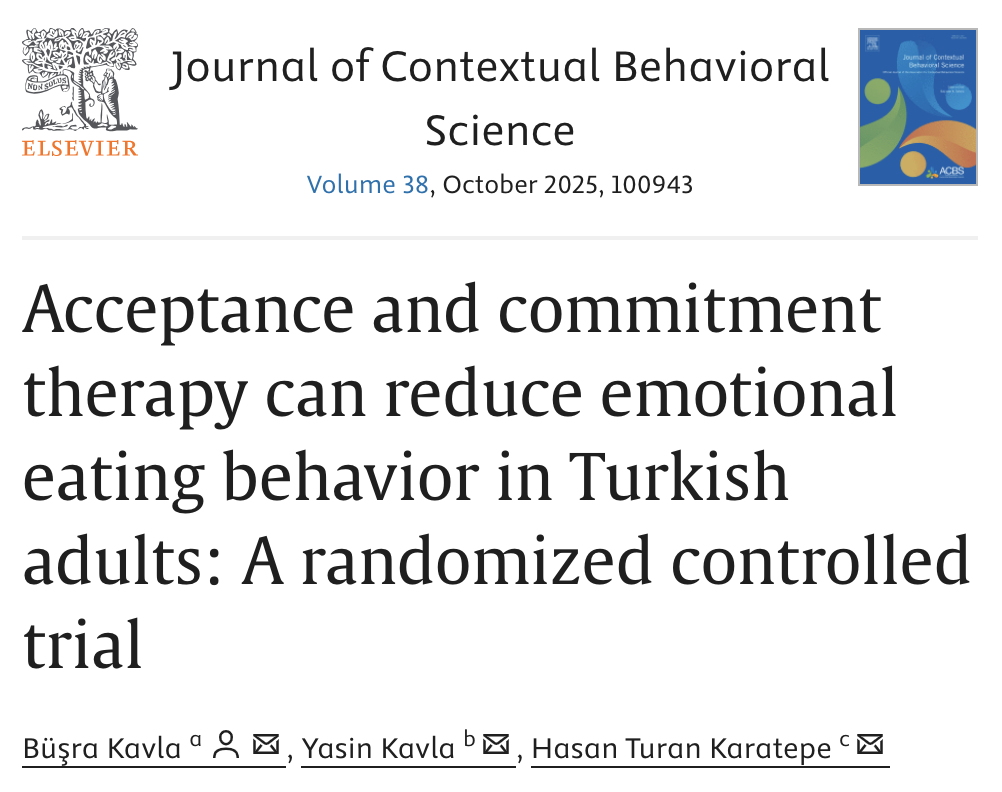Journal of Contextual Behavioral Science (JCBS)
Volume 38, October 2025
Authors
Büşra Kavla, Yasin Kavla, & Hasan Turan Karatepe
Key Findings
- This study introduces the first treatment protocol specifically designed for emotional eating (EE), representing a significant advancement in the field.
- All ACT-based applications and metaphor exercises were meticulously revised to align with EE, including the adaptation of "monsters on the ship" to "MasterChef on the ship."
- The "raisin metaphor" was reimagined as "the snacks I eat most frequently," fostering mindfulness in eating habits.
- This research is the first to examine the impact of ACT interventions on psychological flexibility in the context of EE.
- Unlike previous studies with limited durations, this study implemented an adequate treatment duration to facilitate acceptance and value clarification skills.
- Preliminary findings suggest ACT is a promising approach for reducing EE, enhancing mindful eating, and improving psychological flexibility in adult women.
Abstract
Purpose
Emotional eating (EE) is a significant clinical feature of eating disorders. Acceptance and Commitment Therapy (ACT) is an effective treatment approach for eating disorders. However, the effectiveness of ACT on EE remains unclear. This study aims to develop a new ACT-based intervention and evaluate its effectiveness on EE.
Methods
Forty-five females participated and were randomly assigned to either the ACT group (n = 46) or the control group (n = 45). All participants completed validated measures of emotional eating, psychological flexibility, emotion regulation difficulty, and mindful eating at two points: baseline and post-treatment. At one-month follow-up, participants in the ACT group also completed the baseline measures.
Results
Post-intervention, EE and psychological inflexibility were significantly reduced, while psychological flexibility and mindful eating were significantly increased in the ACT group compared to the control. At follow-up, the ACT group continued to show significantly lower EE levels.
Conclusion
To date, only one study has investigated ACT's effectiveness in addressing EE, using a one-day workshop format, which was considered inadequate for developing acceptance and value clarification skills. This study is the first to adapt traditional ACT practices specifically for EE, with sufficient treatment duration. It is also the first to assess the intervention's impact on psychological flexibility. The results provide preliminary evidence of the potential of an ACT-based approach to reduce EE.
Level of evidence
Level I, Evidence obtained from at least one properly designed randomized controlled trial, systematic reviews, and meta-analyses; experimental studies.
